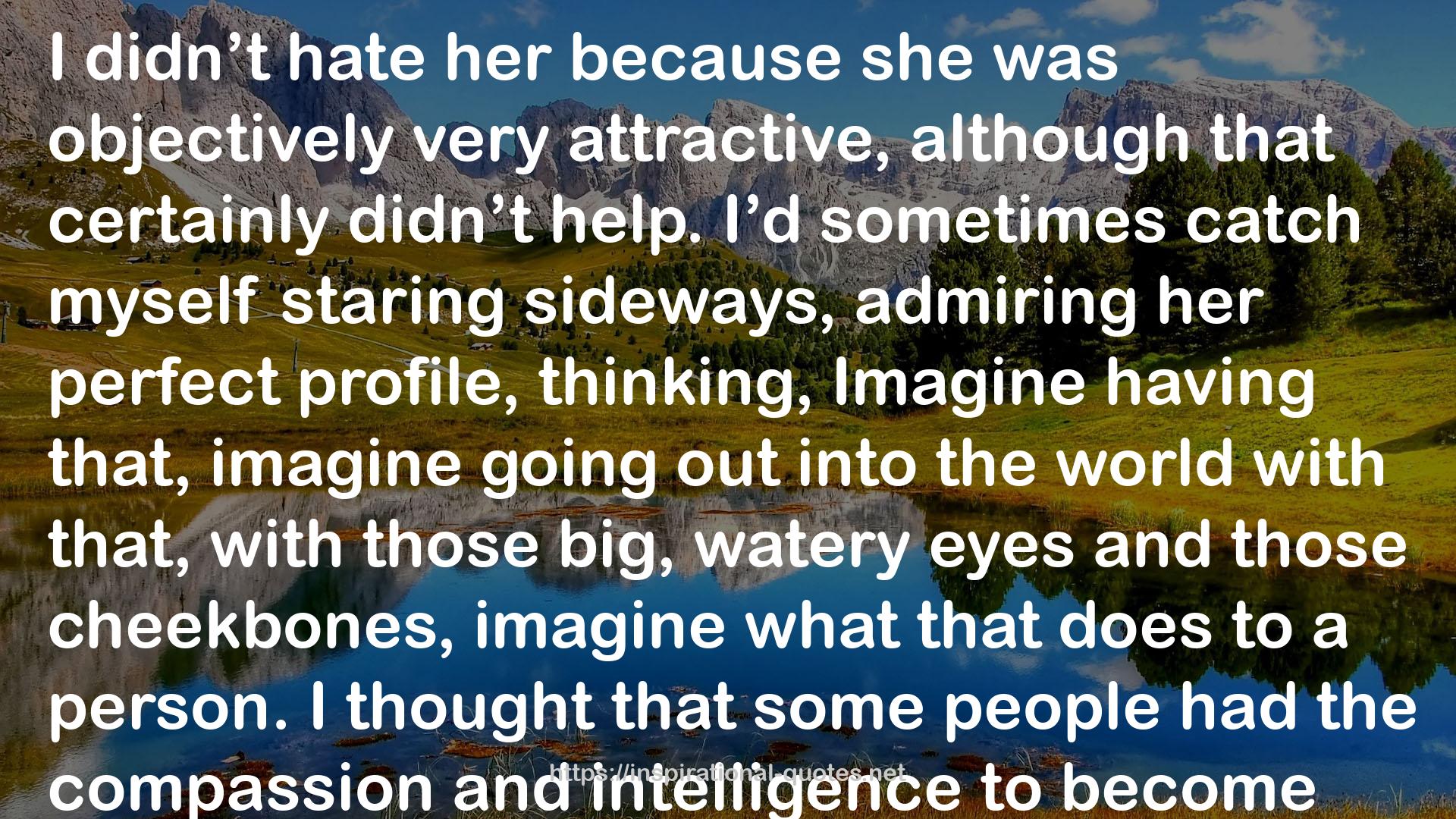" I didn’t hate her because she was objectively very attractive, although that certainly didn’t help. I’d sometimes catch myself staring sideways, admiring her perfect profile, thinking, Imagine having that, imagine going out into the world with that, with those big, watery eyes and those cheekbones, imagine what that does to a person. I thought that some people had the compassion and intelligence to become fundamentally decent people while also being very beautiful, but that Kate wasn’t one of them. She reapplied her lipstick thirty times a day. She took a selfie every morning and afternoon—not to post or send to anyone, just to look at. She got anxious when she ate carbs. She rearranged her hair and asked for feedback on her posture every few hours. We were once in midconversation about an annoying meeting we had to attend, and she veered off to state “I’ve never had a brown coat,” to no one in particular. I found her a peculiarly oppressive presence—just being near her made me feel anxious. Being beautiful, I suspected, had ruined her life. Sitting next to her, I thought about how exhausting it must be to settle for nothing less than perfection because you had the capacity to obtain it. I felt grateful for my own average looks. My wide and unyielding forehead. My slightly crooked nose. It made me feel like what I was doing was very important and that it could maybe even help people. I started thinking I would work on initiating Kate into the Supper Club as a sort of end goal. If we could get her, we could get anyone. "
― Lara Williams , Supper Club
